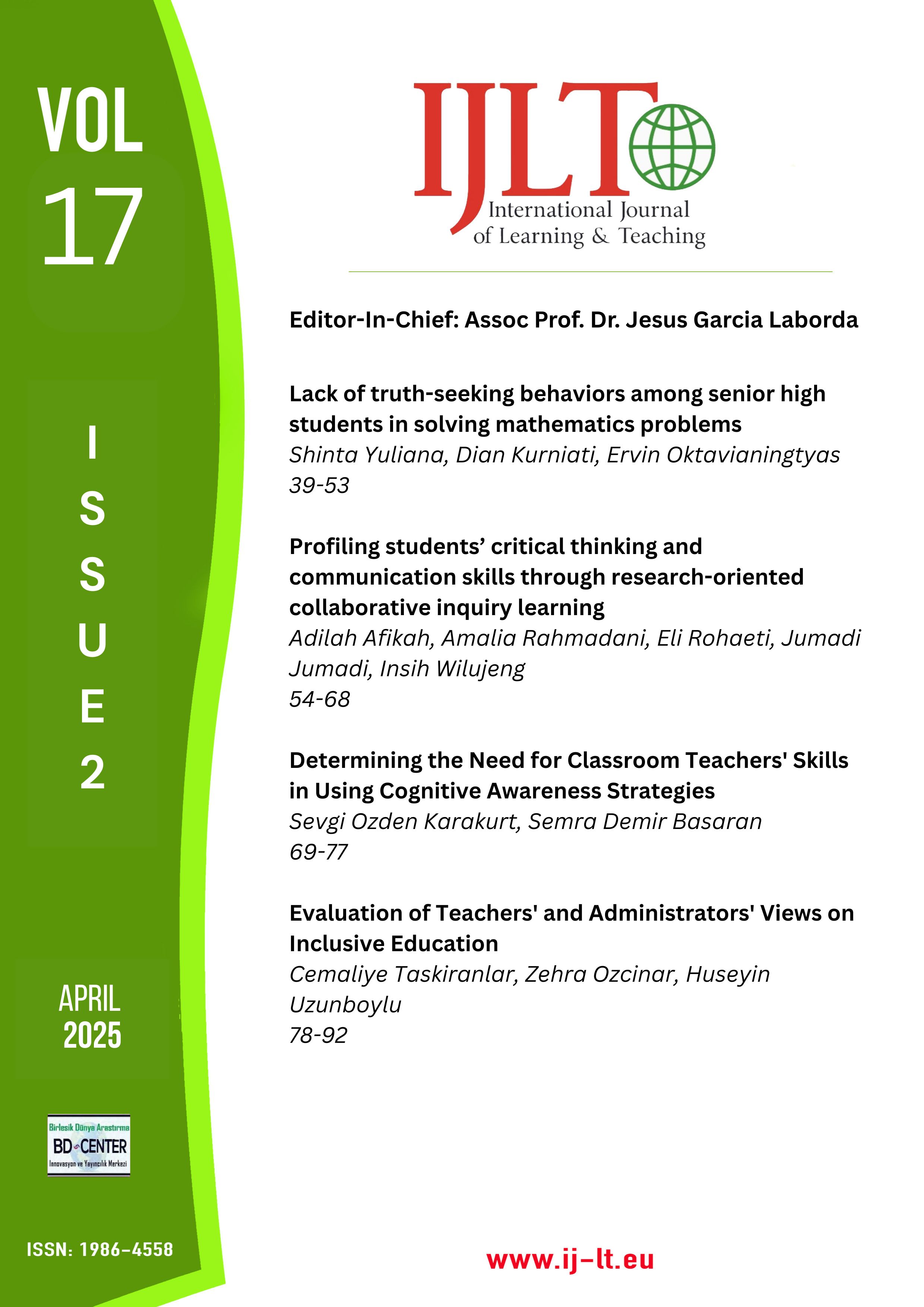Lack of truth-seeking behaviors among senior high students in solving mathematics problems
Main Article Content
Abstract
This study aims to identify patterns in students’ truth-seeking behavior when solving mathematics problems involving an unknown universe of discourse. As a qualitative descriptive study, the research followed a structured process including the preparation and validation of instruments, data collection, subject selection, analysis, triangulation, and conclusion drawing. The participants were 42 high school students who demonstrated ideal problem-solving abilities. Findings indicate that students generally lack truth-seeking tendencies in mathematical problem-solving. They often neglect essential behaviors such as verifying universal sets, explicitly identifying and defining these sets, articulating relevant formulas aligned with problem objectives, detailing procedural steps, adhering to those steps during problem-solving, and evaluating outcomes against the intended goals. Furthermore, students frequently fail to re-examine their solutions, reflecting an implicit assumption that teacher-provided problems are inherently accurate and not subject to further scrutiny. These results underscore the need for instructional practices that foster critical thinking and truth-seeking dispositions in mathematical reasoning.
Keywords: Critical thinking; mathematics education; problem-solving; qualitative research; truth-seeking.
Downloads
Article Details

This work is licensed under a Creative Commons Attribution-NonCommercial-NoDerivatives 4.0 International License.
Authors who publish with this journal agree to the following terms:
- Authors retain copyright and grant the journal right of first publication with the work simultaneously licensed under a Creative Commons Attribution License that allows others to share the work with an acknowledgement of the work's authorship and initial publication in this journal.
- Authors are able to enter into separate, additional contractual arrangements for the non-exclusive distribution of the journal's published version of the work (e.g., post it to an institutional repository or publish it in a book), with an acknowledgement of its initial publication in this journal.
- Authors are permitted and encouraged to post their work online (e.g., in institutional repositories or on their website) prior to and during the submission process, as it can lead to productive exchanges, as well as earlier and greater citation of published work (SeeThe Effect of Open Access).
